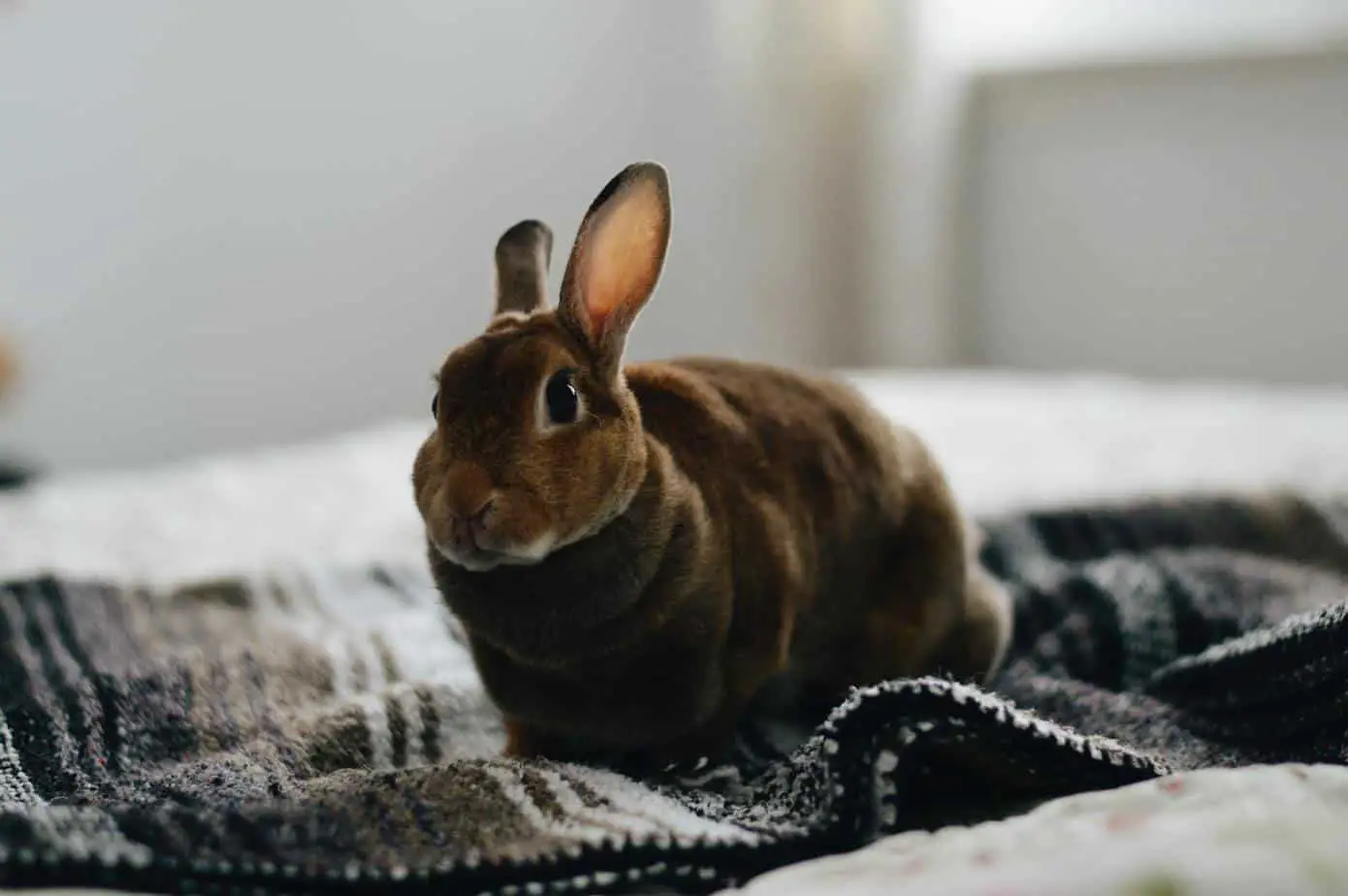
It can be pretty dark in your rabbit’s room or hutch at night. You might be wondering if you need to give your rabbit a nightlight. You don’t want your rabbit to be afraid or distressed in the dark. But does your rabbit really need a nightlight?
Rabbits do not need a nightlight. Patterns of natural light and darkness are very important to your rabbit’s overall health and habits so it’s best not to introduce artificial light at night whenever possible. However, If natural light is unavailable, A dim night may be comforting and will not harm your rabbit.
Now that you know you don’t need to get a nightlight for your rabbit, there are some other factors you should consider when setting up your rabbit’s home. Creating the right environment for your rabbit is an important part of maintaining your pet’s health.
Are Rabbits Afraid of the Dark?
When choosing where to keep your rabbit at night, it’s best to consider a room or hutch with windows that let natural light in and get darker at night. Mimicking the light conditions your rabbit would experience in nature is a good rule of thumb. But what if your only option is a room or hutch with no windows? Will your rabbit be afraid of the dark?
Rabbits are not afraid of the dark. Rabbits, like humans, have a natural circadian rhythm that controls when they are active and when they are tired. As long as he or she is in a safe space, your rabbit will not be afraid in the dark.
Rabbits are naturally skittish animals so any noise or movement at night is likely to make them anxious. As a result, it’s really best to keep your rabbit’s room as quiet and as free of distractions as possible.
Can Rabbits See in the Dark without a nightlight?
Rabbits can see well in the dark. Rabbits do not have a tapetum lucidum and, as a result, they cannot see in great detail when it is pitch black. However, they have better night vision than humans.
Rabbits can see in the dark because smaller animals use night vision as a defense against predators, so a nightlight is not essential for them to feel safe—they’ve adapted to function at night. As long as your rabbit is in an enclosed cage or box and safe from household items or predators that might harm them, there is no need for a light.
Good pet parents care about the safety and happiness of their pets. If it gives you peace of mind, you can leave a dim light on for your rabbit. Small amounts of low light at night will not harm your rabbit.
You do want to try to keep lights at night at a minimum because the lighting at night can actually confuse your rabbit about what time of the day it is and even what season of the year it is.
Rabbits Are Crepuscular
Rabbits are most awake and active during dusk and dawn. They will be the most alert while the sun is rising or setting.
Fun Fact: Rabbits are crepuscular which means they rest during the middle of the day and at night.
In nature, they are exposed to light, dark, and everything in between throughout the day and night. Rabbits have a 24-hour internal clock that is affected by the amount of light and dark they are exposed to. They are used to the light, dark, and everything in between and need exposure to all variations of light to thrive.
This means that rabbits can sleep comfortably in the light and in the dark. It’s clear that patterns of light and darkness are very important to your rabbit’s health and habits so it’s best not to introduce artificial light whenever possible.
Do Rabbits Sleep Through the Night?
Rabbits don’t sleep through the night. Because rabbits can see at night and are always alert, they tend to wake up for periods of time during the night in response to sounds and movement.
You can help your Rabbit sleep through the night by:
- Limiting the amount of light in their room at night
- Too much light might make it easier for rabbits to find distractions that stop them from sleeping
- Rabbits can and will get into anything so leaving lights on might invite them to be more active during the night
- Try to mimic the levels of light and dark a rabbit would experience in nature
Setting up Your Rabbits Sleeping space in Your Home
Rabbits really should be kept indoors and have plenty of stimulation. Here are some things to consider when designating a space for your rabbit to sleep in your home.
- Keep them in a space that gets natural light during the day and darkness after dusk. If anything, avoid excessive light.
- They love their space and can sometimes be territorial so give them their own space.
- Rabbits need constant stimulation. Keep them busy with toys and things to chew on.
- Fill their space with soft woods chips, pet toys, cardboard, and hard plastic. Trust us, you’ll want to give them plenty of things they can chew on, so they don’t turn to your furniture, plants, or wires.
- They love to dig! Fill the bottom of their space with paper clippings so they can dig away.
- They like quiet spaces to retreat to and prefer something enclosed like a carboard box.
- They need access to water and proper ventilation
- Give them some enclosure to keep out other animals and the elements if you do keep your rabbit outdoors
- If the temperature gets close to 85 degrees, your rabbit needs a fan or air conditioner
- You want to keep your rabbit comfortable between 40 – 85 degrees Fahrenheit
- If you want to leave a light on for them at night, make sure it’s dim
Do Rabbits Like to Cuddle with You at Night?
While you might like to cuddle with your furry friend at nighttime, make sure you’re doing so on their terms. Most Rabbits actually fear being picked up by their owners.
You might feel like you are comforting and protecting your rabbit by picking it up and holding it close to you. However, your rabbit might not feel the same way.
That doesn’t mean rabbits aren’t affectionate towards their owners. Let your rabbit crawl into your lap or rest on you when they want to.
Rabbits do like to burrow, dig, and find shaded shelter to rest and they do like a cozy environment.
What Are Rabbits Afraid of at Night?
Rabbits are small animals and are often prey in the wild, so they are afraid of anything that seems like a threat. While you know they are safe from predators and the elements in your home, they might still feel scared under certain conditions at night.
Here are some things your rabbit is afraid of at night:
- Loud noises
- Unusual smells
- Sudden movements
- New people and animals
You might think your rabbit is scared of everything since they can be jumpy and skittish.
Rabbits are most sensitive to at night:
- smells
- sounds
- light
- people
But just because they are sensitive to light doesn’t mean they are scared of the dark.
Rabbits have somewhat fragile bones, so they are most afraid of falling. They might seem skittish because they are afraid of being dropped and can get startled.
In Conclusion

Rest easy, your rabbit is not afraid of the dark. Your rabbit probably enjoys the quiet stillness of the night as long as they are safe from predators, the elements, and have plenty of things to chew on if they get bored. In fact, you might be more afraid of the dark than your rabbit is.
